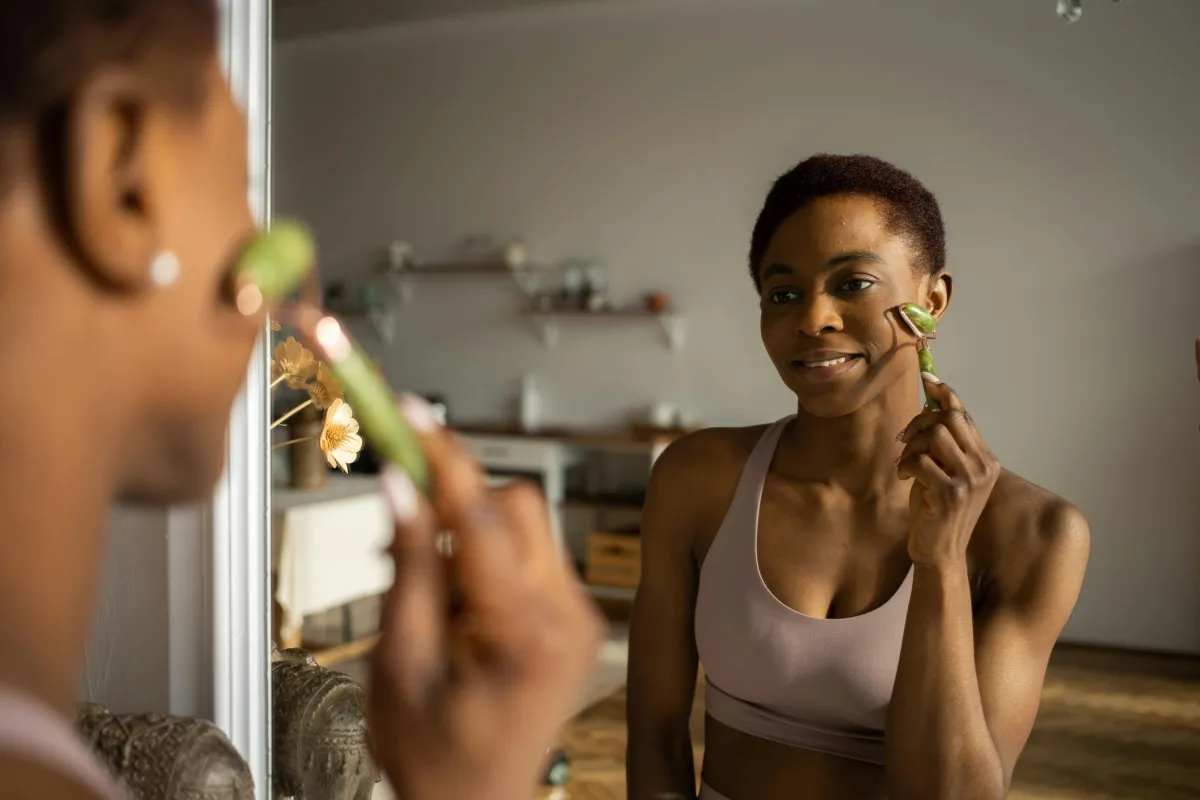
WELCOME TO THE
Radiance republic
We believe that true beauty comes from within, and that taking care of your mind, body, and spirit is the key to living a radiant life. Radiant life for a radiant soul.
Lifestyle & Wellness
A go-to source for women who are looking to prioritize their health and beauty needs while maintaining a sustainable and eco-friendly lifestyle.
Beauty & Skin
We believe in promoting an overall positive mindset that radiates through the body and skin.
Modern Equipment
Beyond beauty and wellness, we believe in living a holistic lifestyle. We value positive mindset, mental health, and self-care.

Understanding Skin Discoloration: Causes, Types, and Best Treatment Options
Clear, even-toned skin is something many people aim for, but discoloration often gets in the way. Whether it’s the result of sun exposure, acne scars, or underlying conditions, uneven skin tone is one of the most common skin concerns. Fortunately, understanding what causes discoloration and knowing what to do about it can make a big difference in how skin looks and feels over time.
What Is Skin Discoloration?
Skin discoloration refers to any change in the natural color of your skin. It might show up as dark patches, red areas, or lighter spots. These changes can occur gradually or suddenly, and they may affect small or large parts of the body.
Discoloration can be temporary or permanent, depending on the cause and the care it receives. Recognizing the type of discoloration you’re dealing with is key to finding the right treatment strategy.
Common Causes of Skin Discoloration
There are several factors that lead to skin discoloration. Some of the most common include:
Sun Exposure: Prolonged exposure to UV rays can trigger excess melanin production, leading to sunspots or hyperpigmentation.
Hormonal Changes: Pregnancy, birth control, or hormonal therapy can cause melasma—a type of discoloration that appears as symmetrical dark patches.
Post-Inflammatory Hyperpigmentation (PIH): This often follows acne, cuts, or other skin trauma, leaving behind dark marks.
Medical Conditions: Vitiligo, eczema, or certain fungal infections may cause patches of skin to become lighter or darker.
Medications: Some drugs can cause photosensitivity or pigmentation changes as a side effect.
Aging: Over time, the skin's ability to regenerate declines, which can result in uneven tone and age spots.
Types of Skin Discoloration
Understanding the type helps narrow down the best approach to treatment. Here are a few of the most frequently seen:
Hyperpigmentation: When the skin produces too much melanin, leading to dark patches or spots.
Hypopigmentation: When melanin is underproduced, resulting in lighter patches.
Melasma: Triggered by hormones or sun exposure, commonly seen on the face.
Redness/Rosacea: Chronic inflammation that causes redness and visible blood vessels.
Sunspots (Lentigines): Small, darkened patches caused by years of sun exposure.
Best Treatment Options
The right treatment depends on the cause and type of discoloration. Below are effective options backed by skin professionals and dermatologists.
1. Topical Treatments
Vitamin C: Brightens and reduces dark spots with consistent use.
Niacinamide: Helps fade hyperpigmentation while strengthening the skin barrier.
Retinoids: Promote skin cell turnover and reduce pigmentation over time.
Hydroquinone: A prescription-strength lightener, best used under professional guidance.
2. Chemical Peels
Peels using acids like glycolic, salicylic, or lactic acid can help exfoliate the skin and fade discoloration. These treatments vary in intensity and are often administered in professional skincare clinics.
3. Laser Therapy
Targeted laser treatments break down pigment in the skin. These are especially effective for stubborn sunspots and melasma but require multiple sessions.
4. Microneedling
This minimally invasive procedure stimulates collagen production and helps fade dark marks over time.
5. SPF, Always
No matter the treatment, daily sunscreen is non-negotiable. Without it, discoloration will persist or worsen.
Professional Help Matters
For stubborn or persistent discoloration, professional support is often the most effective route. Expert estheticians and skincare specialists can assess your skin type and tailor treatments that work faster and more safely than guessing at products.
If you're looking for expert facial care and non-toxic treatments, Facial Lounge offers customized facials designed to target skin discoloration, acne scars, melasma, and more. Their approach is grounded in clean skincare with results that show.
Skin discoloration is more common than many realize, and there’s no single fix. But with consistent care, proper treatments, and the right expert guidance, it can be significantly improved.
One or more of the links above are affiliate links, meaning, at no additional cost to you, we will earn a slight commission if you click through and make a purchase. Each of these products is chosen by a trusted member of our team.

© 2023 All Rights Reserved.